Edited 3/15/23 to include late Commissioner Ella B. Scarborough.
The County has a long history of trailblazing women whose leadership, strength, courage, and achievements help shape our organization. In celebration of Women’s History Month, we’re recognizing some of the women who have made those invaluable contributions.
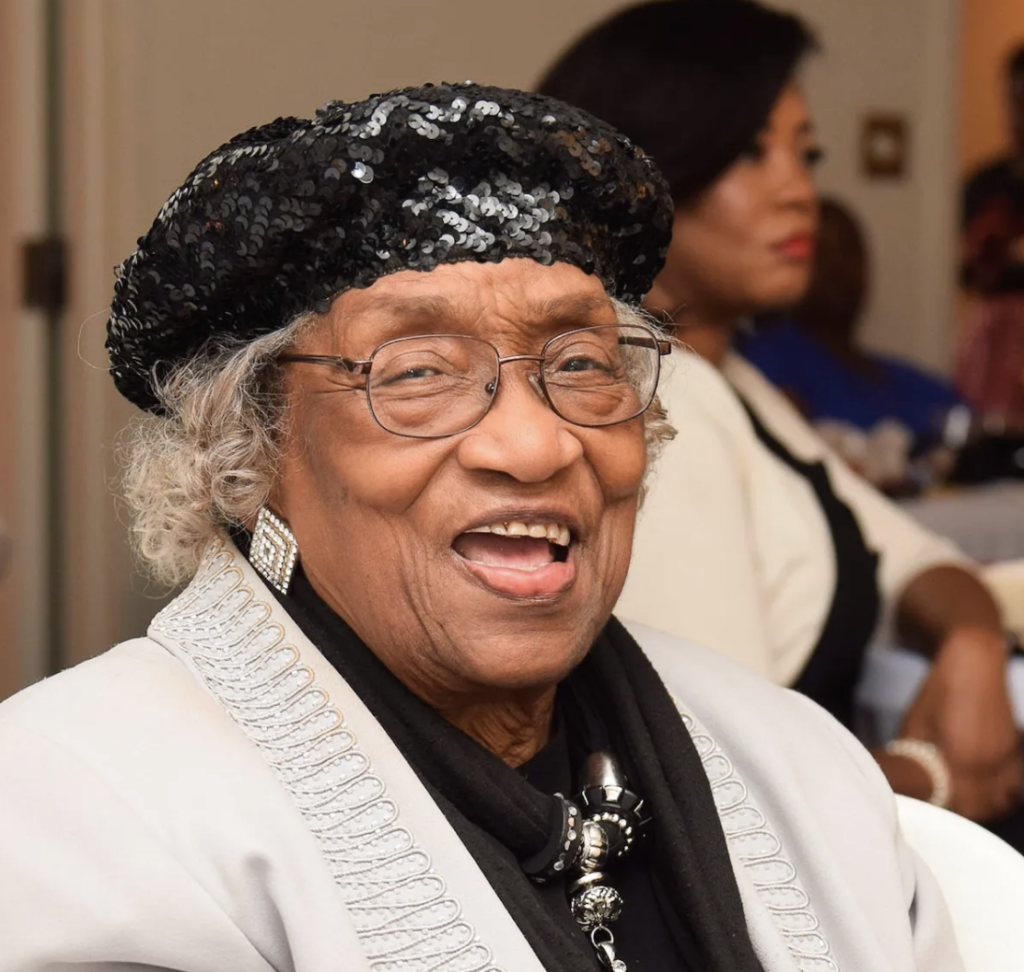
Thereasea Clark Elder joined the County in 1962 as the first Black nurse to integrate the public health nursing system. In addition to her career as a public health nurse, Elder provided health consultation and volunteered for organizations including Hospice, Energy Committed to Offenders, American Red Cross, Cancer Prevention Coalition and the League of Women Voters. The Public Health Department established the Thereasea Elder Community Health Leadership Academy, under the Village HeartBEAT program. It provides health-related resources and training to black churchgoers. Elder retired from Mecklenburg County in 1989. She died in 2021 at the age of 93.
Sources: the Mecklenburg County website and WCNC.
Leadership in Public Health
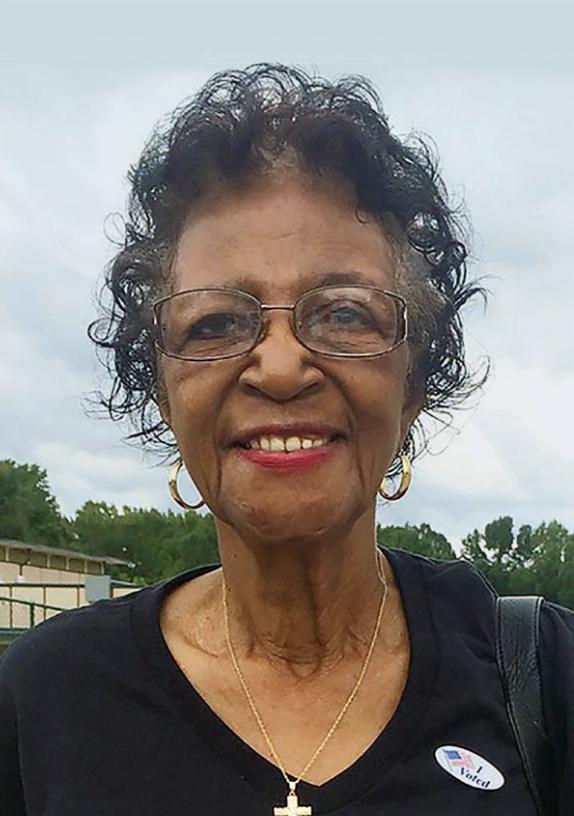
Madie Maddox applied to work with Public Health in 1956. But she was only hired when another Black nurse left. After coming to work for the County, Smith became the County’s first certified child health specialist. She eventually became Public Health’s first Black supervisor. In 2022, Public Health partnered with local organizations to launch the Madie Maddox Smith Women’s Health Equity Institute. It aims to provide inclusive opportunities for women’s health (mind, body, spirit and emotional well-being) and promote women’s empowerment over their own health and well-being.
Sources: TuesdayForumCharlotte.org and Pride Magazine
The First
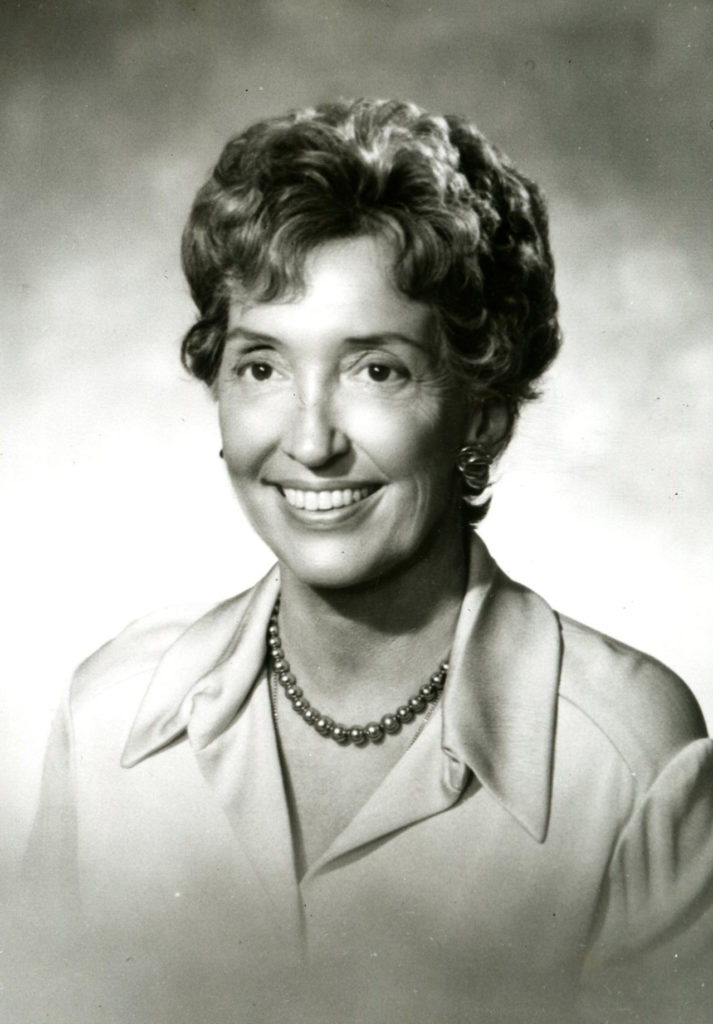
Elisabeth G. Hair was the first woman to serve on the Mecklenburg Board of County Commissioners (1972) and as Board Chair (1979). She was also the first woman to chair the Board of Elections. She founded the Mecklenburg County Democratic Women’s Club and the Charlotte Women’s Political Caucus. An advocate for women and children, Hair championed the creation of a battered women’s shelter and a stand-alone County Mental Health Center. In honor of her support for the Clean Air Coalition and the environment, the County and Partners for Parks named a section of Little Sugar Creek Greenway, the Liz Hair Nature Trail.
Sources: Hair’s Obituary, WFAE and The Charlotte Observer
Leadership on the Beat
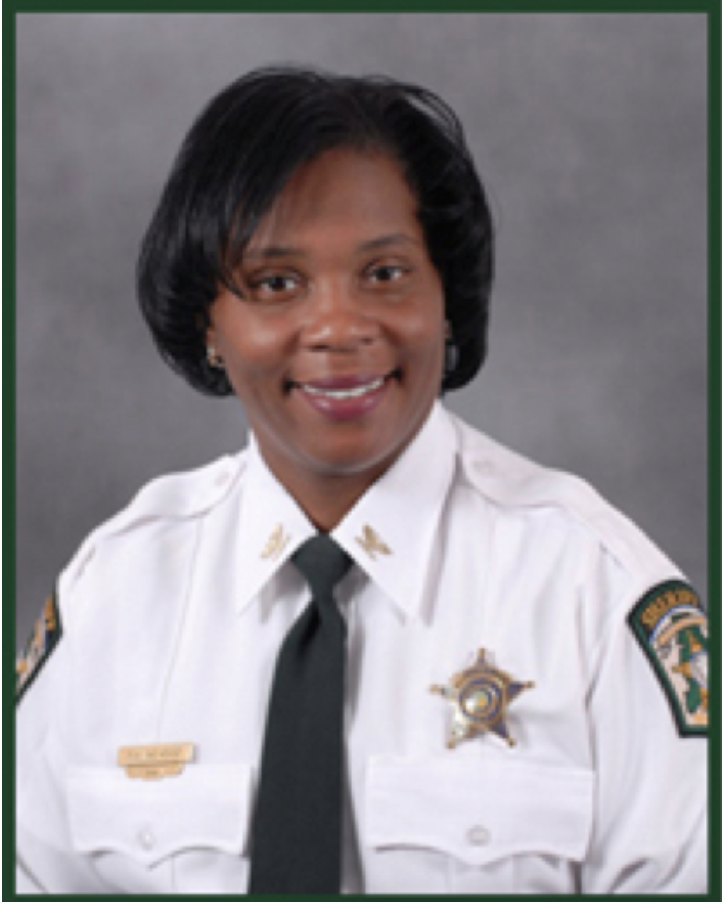
When Felicia McAdoo retired as Chief Deputy Sheriff in 2016, she was the highest ranking female officer in the Sheriff’s Office. A 30-year veteran, she began her career in 1986 as a security officer. She served in every level of supervision- Sergeant, Lieutenant, Captain, Major, and Detention Commander until her selection to Chief Deputy in 2008. McAdoo’s work extended beyond her various roles in the Sheriff’s Office. She served as a mentor for the County’s Leadership Education and Development program and the National Association of Black Public Administrators. She was also a member of the Charlotte-Mecklenburg Opportunity Task Force. Her honors include 2012 Mecklenburg County Employee of the Year, the Distinguished Service Award from the NAACP, the Order of the Long Leaf Pine and the Order of the Hornet.
Sources: SameSheild and Charlotte Mecklenburg Library
A Life of Service
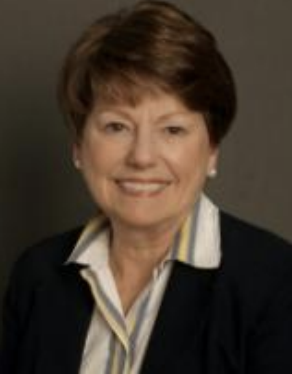
Patsy Kinsey was the first woman to serve on the Mecklenburg Board of County Commissioners, Charlotte City Council and as Mayor. She also served on the boards of the North Carolina Association of County Commissioners and the North Carolina Child Fatality Task Force. She was a member of the Mecklenburg County ABC Board and the Mecklenburg County Alliance of Excellence in Justice. But she didn’t stop there. The native Charlottean is known for her advocacy of the arts and historic preservation. She served on the Charlotte-Mecklenburg Landmarks Commission and the City of Charlotte Historic District Commission. Kinsey is also known for using the mayor’s office to advocate for such issues as gay rights. She was named Charlotte Woman of the Year in 2013.
Sources: The Charlotte Observer and the City of Charlotte website.
A Pillar in the Community
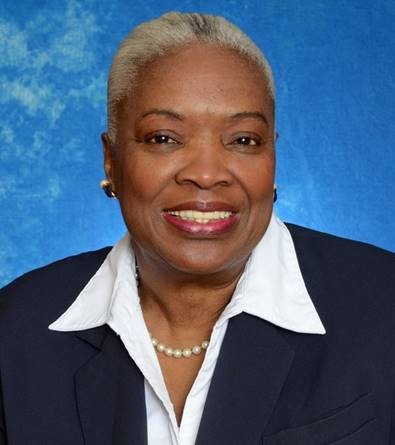
Ella Butler Scarborough served on the Mecklenburg Board of County Commissioners from her election at-large in 2014 until her death in 2022. She was the first Black woman to serve as chair, from 2016 to 2018. Commissioner Scarborough made history as the first Black woman elected to the Charlotte City Council, serving from 1987–1997 (district and at-large).
She was also a statewide candidate for U.S. Senate in 1998 and ran for Charlotte mayor in 1999 and 2001. In 2008, Commissioner Scarborough served as a North Carolina delegate at the Democratic National Convention. In the 1960s, during her youth in South Carolina, she became known for her activity in the Civil Rights Movement.
Source: Mecklenburg County website
The County Manager
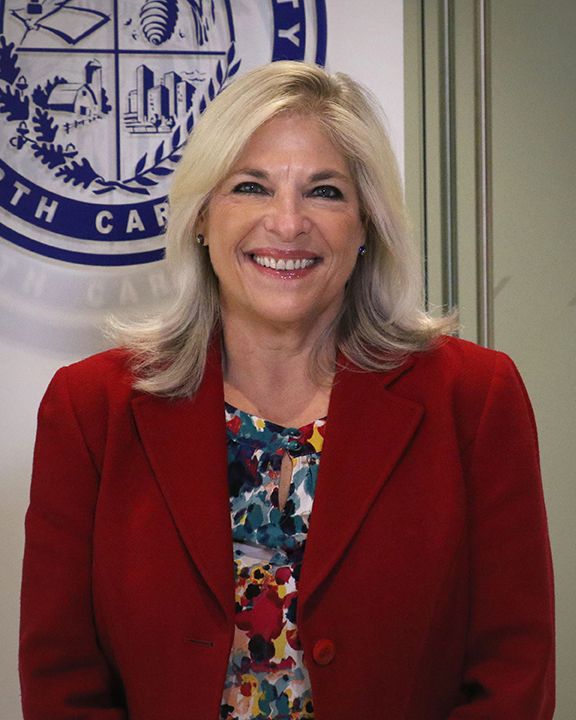
In 2013 Dena R. Diorio became the County’s first female manager. With more than 30 years of public service experience, she has a passion for public service. Serving as CEO of one of the largest counties in North Carolina is a huge responsibility. She’s the head of more than 5,500 employees and an annual operating budget of $1.6 billion. Diorio has taken a strategic approach making sure the County’s operating at the highest level. All while also considering the benefit of our residents and the business community. Diorio has also ushered in the first of its kind Community Resource Center, bringing County Social Services to residents where they live. Out of The Leading On Opportunity Task Force came the MECK Pre-K Program. This program has allowed thousands of our youngest residents to attend pre-k free of charge since 2018.
From Yesterday to Today
Now, 63% of County employees are women who are following in the footsteps of those listed above. They serve, influence and improve the services they provide every day. Their community is better for it and for the next generation of powerful women to come.
